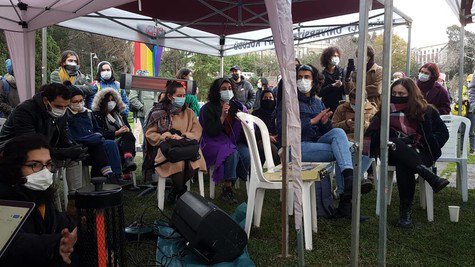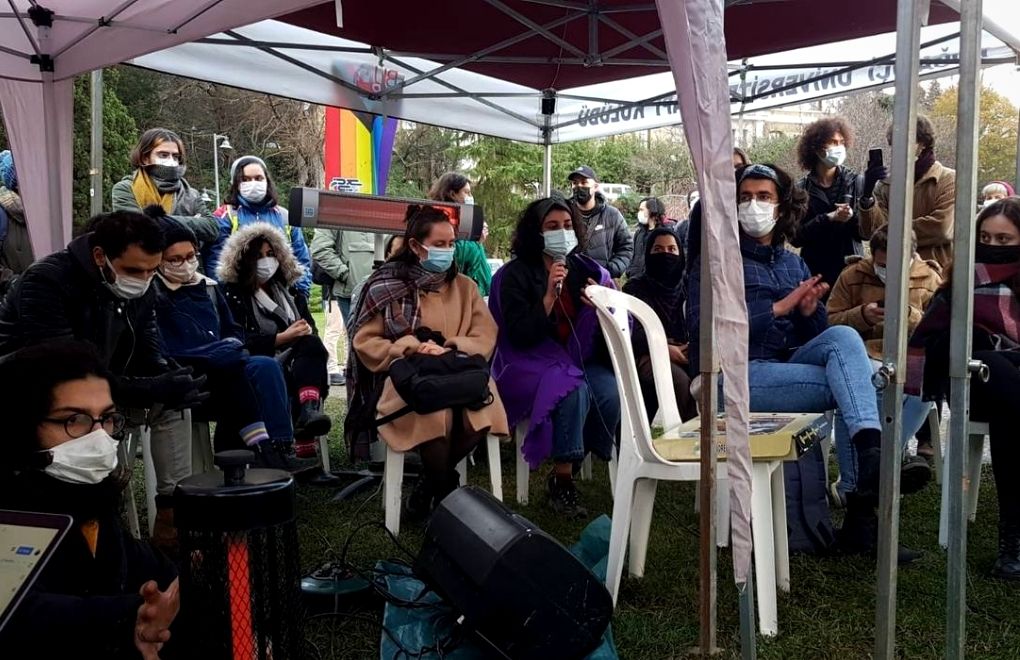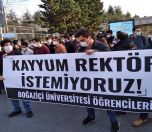* Photos: Boğaziçi Resistance
Click to read the article in Turkish
Since President and ruling Justice and Development Party (AKP) Chair Recep Tayyip Erdoğan appointed Prof. Melih Bulu, an academic outside Boğaziçi's community, as the new university president on January 1, the students and faculty members of Boğaziçi have been protesting.
The students of Boğaziçi University held a meeting of "What happened, what should be done?" at the South Campus of the school in İstanbul yesterday (January 14) and discussed how the protests would proceed.

The Student Representative Board (ÖTK) of Boğaziçi also did video interviews with Prof. Dani Rodrik from Harvard University and Prof. Daron Acemoğlu from Massachusetts Institute of Technology (MIT).
Dani Rodrik briefly said:
In democratic countries, it is not very common that a President, the chair of a political party directly appoints a rector to a university. This is a highly odd and different method. In appointing Melih Bulu to Boğaziçi, there has been a divergence from the traditions and methods unique to the university. What matters here is the academic respectability of the appointed person. What concerns me most here is the allegations that the rector did plagiarism. I have reviewed some of these allegations and come to the conclusion that these allegations have solid ground. Plagiarism is a red line; it is either there or not. If there is plagiarism, a research associate, let alone a university president, must not remain in office; that person must resign or the appointment must be withdrawn.
Indicating that "everyone in society must be within politics, but what is important here is how partisan that person is when within politics," Prof. Rodrik briefly added, "For instance, at Harvard University, the persons holding top positions in the university held senior offices. But, for instance, I do not think that a person who held a senior position in Donald Trump's administration will take office in the university administration."
'Science has lost its autonomy'
Prof. Daron Acemoğlu also said:
I think it is wrong to discuss it through election or appointment. The problem here is whether the appointment is done politically or done by a committee within a specific academic process. When you look at the US and also in the European countries that I know, university presidents are appointed by a particular academic committee or a board of trustees. In other words, these appointments have no political significance. Several universities say 'No' to political appointments. Doing something like that is not even possible. The problem here is that the person has been appointed as a result of a political process. There is a huge problem in the structure of the Council of Higher Education (YÖK) and, moreover, science has lost its autonomy in Turkey over the past 15 years.
(DŞ/SD)














